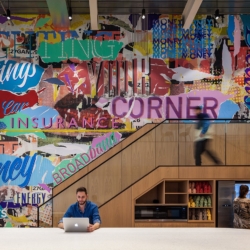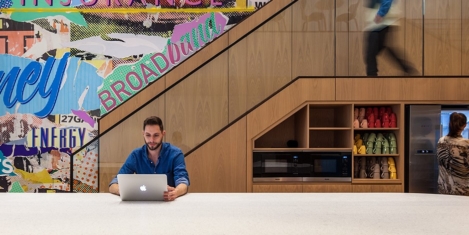June 15, 2020
The here and now, no BS guide to the workplace
 For years, forward-thinking employers have offered a choice of work spaces to match the varying levels of concentration and collaboration different tasks demand. And those spaces included employee’s homes. In March, all organisations were suddenly bounced by the COVID-19 restrictions into supporting homeworking for their office employees. It’s too early to say what lasting impact this will have on work patterns, though it’s a fair guess that the effective mass trial of remote working could trigger a cultural shift as more employers and employees see the benefits of using the home as an extension of the workplace, when it suits both parties. Research commissioned by BDG in April found that of 200 CEOs surveyed, almost one in four believes the long-term impact of COVID-19 will be “continued remote working”. (more…)
For years, forward-thinking employers have offered a choice of work spaces to match the varying levels of concentration and collaboration different tasks demand. And those spaces included employee’s homes. In March, all organisations were suddenly bounced by the COVID-19 restrictions into supporting homeworking for their office employees. It’s too early to say what lasting impact this will have on work patterns, though it’s a fair guess that the effective mass trial of remote working could trigger a cultural shift as more employers and employees see the benefits of using the home as an extension of the workplace, when it suits both parties. Research commissioned by BDG in April found that of 200 CEOs surveyed, almost one in four believes the long-term impact of COVID-19 will be “continued remote working”. (more…)









 With lockdown measures slowly easing in the UK, 65 percent of UK workers reveal that they would feel uncomfortable going back to the workplace right now, research claims. This is despite one in five (20 percent) expecting to be asked by their bosses to return to work in June. That’s according to new ‘Return to Work’ research from
With lockdown measures slowly easing in the UK, 65 percent of UK workers reveal that they would feel uncomfortable going back to the workplace right now, research claims. This is despite one in five (20 percent) expecting to be asked by their bosses to return to work in June. That’s according to new ‘Return to Work’ research from 
 The Covid-19 pandemic has highlighted workplace communication as the area leadership most needs to improve on, according to almost half (43 percent) of professionals
The Covid-19 pandemic has highlighted workplace communication as the area leadership most needs to improve on, according to almost half (43 percent) of professionals 





















May 29, 2020
The role of workplace professionals in the new era of work
by Kelly Bream • Comment, Flexible working, Property